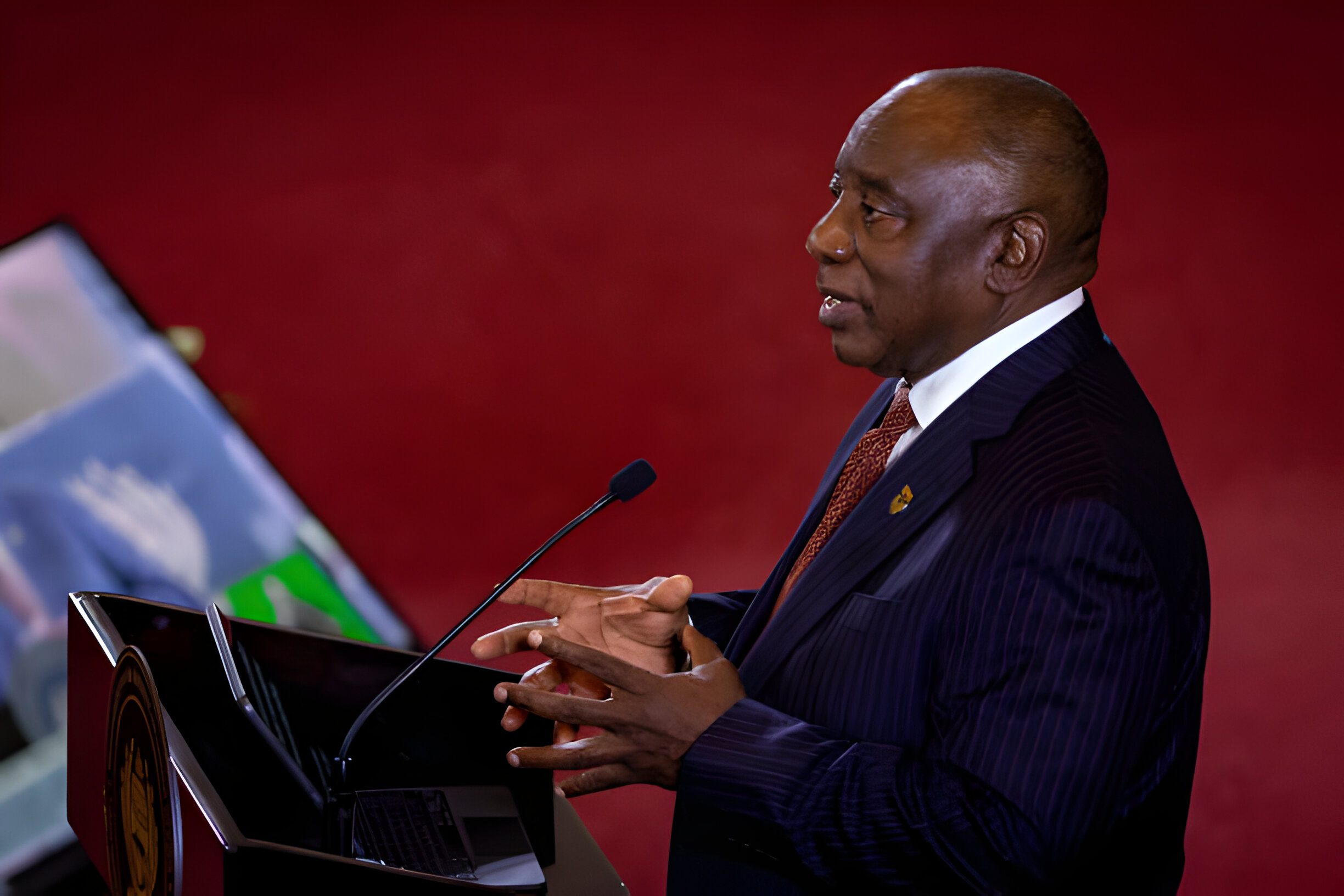South African President Cyril Ramaphosa inaugurated a new parliamentary session on Thursday, nearly two months after a landmark election that transformed the nation’s political landscape, leading to the creation of an unprecedented multi-party coalition government.
In his address to lawmakers at Cape Town City Hall—a temporary location following the fire that destroyed the parliament building two years ago—Ramaphosa officially commenced the new coalition’s operations. This coalition, comprising at least ten parties, is set to govern Africa’s most industrialized nation.
Ramaphosa acknowledged that despite political differences within his government, there was a shared commitment to addressing South Africa’s primary challenges: unemployment, pervasive poverty and inequality, and the deterioration of state institutions, a situation largely attributed to corruption and neglect under the African National Congress (ANC), Ramaphosa’s party.
The May 29 election was a significant moment for South Africa. Frustrated by persistent issues, voters delivered the ANC its worst result since the end of apartheid, losing the majority it had maintained for 30 years.
“Despite the achievements of 30 years of democracy, millions of South Africans remain poor, unemployed and live in a deeply unequal society,”
Ramaphosa stated, admitting some of the ANC’s shortcomings.
“The circumstances of South Africa today demand that we act together,”
he added.
Ramaphosa’s speech signified the beginning of what is termed “the seventh administration,” the seventh government since the end of apartheid in 1994 when all races were first allowed to vote. His address primarily called for political unity and was generally well-received by lawmakers. This response was expected given the inclusion of many parties in the governing coalition, including the Democratic Alliance, once a fierce adversary of the ANC.
The political shift also introduced a new official opposition, the recently established MK party led by former President Jacob Zuma, who has become Ramaphosa’s staunchest critic. During the first parliamentary session, MK members and the far-left Economic Freedom Fighters party, which has an opposition alliance with MK, were relatively subdued. Zuma himself was absent, disqualified from parliament due to a criminal conviction and prison sentence in 2021 for contempt of court.
Ramaphosa, who once was a protégé of Nelson Mandela, embarks on his second and final five-year term. The ANC’s humiliating election result necessitated cross-party support for his re-election as president by lawmakers last month. His primary challenge will be maintaining cohesion within a diverse coalition amidst South Africa’s significant problems.
The nation faces a staggering 32% unemployment rate, the highest globally, and remains the world’s most unequal country in terms of wealth distribution. Additionally, the economy has been stagnant for over a decade. To combat these issues, Ramaphosa stated that his coalition government, termed the “government of national unity,” would focus on economic growth and job creation across various sectors, including mining, agriculture, small businesses, and green energy, while also tackling corruption and bureaucratic inefficiencies.
Despite offering few specific policies, Ramaphosa’s speech was an overarching call for unity after a contentious and divisive election.
“The inter-party cooperation is a historic moment for our country,”
Ramaphosa remarked.
“We share a commitment to reconcile our nation.”

















